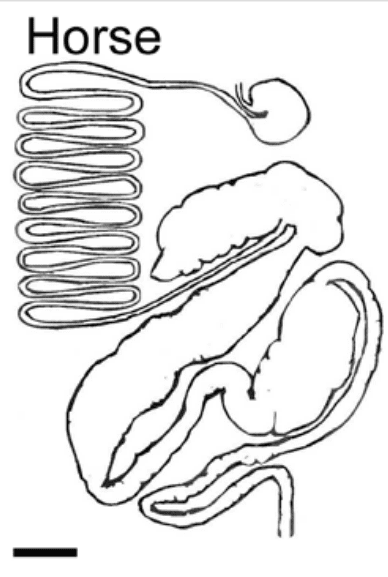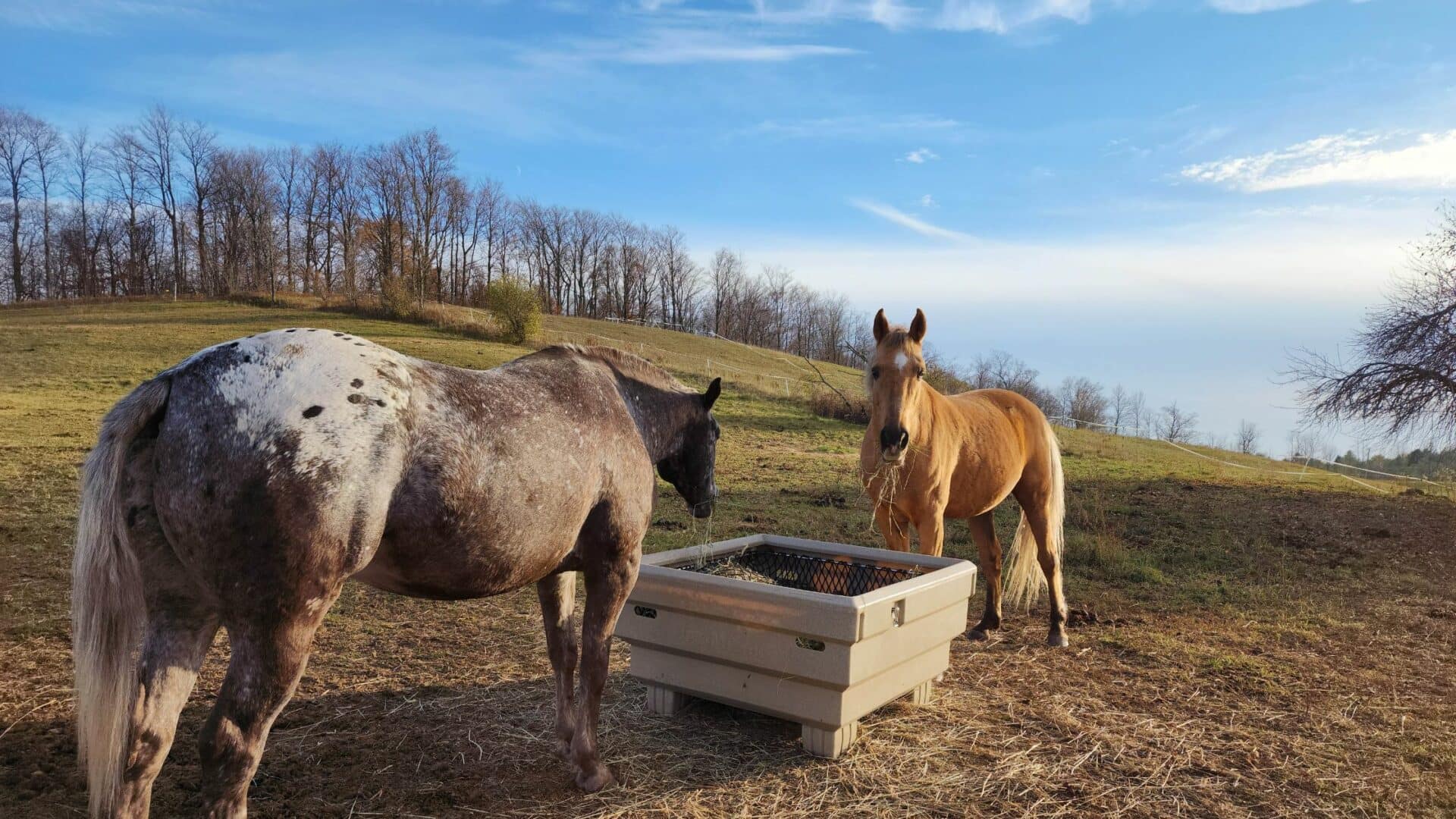Have you ever been late to feed your horse? What if you have an event that runs until 6pm, but your horse is normally fed at 4pm?
If this is a situation that causes you stress, then this article is for you.
Many horse owners keep their horse on a rigid feeding schedule and panic when it is disrupted. However, when we look at the research, is there actually a reason to be stressed about this?
Should Horses Be Fed at the Same Time Every Day?
The research suggests that there is no physiological reason that a horse needs to be fed at the same time every day. Your horse’s anticipatory behaviour that they show prior to feeding time is a conditioned response to expecting that meal at a specific time. This behaviour tends to cause horse owners to think that the horse “needs” to be fed at the same time due to them anticipating it. This is a myth.
If you’ve been around most barns, you will notice that it’s extremely common for people to follow a rigid feeding schedule, but why?
In equine nutrition, it’s well known that large grain meals with a high starch content are not compatible with the equine gastro-intestinal tract. Therefore, when large amounts of commercial feeds or grains are given, they must be divided into smaller portions and fed more frequently. This incompatibility in the digestive tract can lead to health consequences such as colic and laminitis. To lower this risk, dividing the meal into smaller portions is always recommended, but this does not mean that they must be fed strictly at 7am and 5pm, to give an example, especially if the horse is being supported by access to free-choice forage. The schedule many horse owners stick to likely stems from our own human schedule and habits.


Image retrieved from: Furness, J. B., Cottrell, J. J., & Bravo, D. M. (2015). Comparative gut physiology symposium: comparative physiology of digestion. Journal of animal science, 93(2), 485-491.
The image above illustrates key anatomical differences between the digestive anatomy of the horse and human. The stomach of the horse is significantly smaller in relation to the rest of the gastro-intestinal tract compared to the human stomach. This highlights how the horse is truly not designed to consume large meals, they are designed to trickle feed. Therefore, when we impose a human schedule of meal feeding on our horses, it’s not supportive of their anatomy.
Horses are grazing animals; they are built to consume small amounts of nutrition over many hours. Therefore, why are we giving meals at all? Well, most of the time a 100% forage diet will not meet the horse’s vitamin and mineral requirements, so an additional feed must be added.
Research recommends maintaining a variable window in your feeding schedule to reduce anticipatory behaviours and stress around feeding times. We also know that when horses are fed on a strict schedule, they are at a higher risk of developing destructive behaviours. The literature recommends that horses should have continuous access to forage, then you can provide their other feed in a variable time-frame.
When it comes down to it, feeding your horse should not be stressful. It should be an enjoyable activity. There’s no need to cause yourself an immense amount of stress to race to the barn to get that meal right on time. If you feed your horse on a rigid schedule currently, try starting to move towards a more flexible schedule. I bet you will see an improvement in your horse’s behaviour! And if you are on a strict schedule and run late to meal, as long as your horse has free-choice access to forage, they will be okay. There’s no need to panic.
References:
Cooper, J., & McGreevy, P. (2007). Stereotypic behaviour in the stabled horse: causes, effects and prevention without compromising horse welfare. The welfare of horses, 99-124.
Ninomiya, S., Kusunose, R., Sato, S., Terada, M., & Sugawara, K. (2004). Effects of feeding methods on eating frustration in stabled horses. Animal Science Journal, 75(5), 465-469.
Peters, S. M., Bleijenberg, E. H., van Dierendonck, M. C., van der Harst, J. E., & Spruijt, B. M. (2012). Characterization of anticipatory behaviour in domesticated horses (Equus caballus). Applied Animal Behaviour Science, 138(1-2), 60-69.
Zupan, M., Štuhec, I., & Jordan, D. (2020). The effect of an irregular feeding schedule on equine behavior. Journal of applied animal welfare science, 23(2), 156-163.Furness, J. B., Cottrell, J. J., & Bravo, D. M. (2015). Comparative gut physiology symposium: comparative physiology of digestion. Journal of animal science, 93(2), 485-491.

